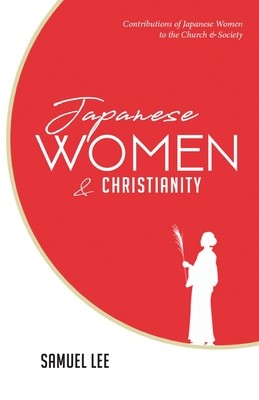
- We will send in 10–14 business days.
- Author: Samuel Lee
- Publisher: Academy Press of Amsterdam
- ISBN-10: 907951604X
- ISBN-13: 9789079516049
- Format: 14 x 21.6 x 1 cm, softcover
- Language: English
- SAVE -10% with code: EXTRA
Reviews
Description
Japanese Women and Christianity describes the significant roles that women in Japan have played since the arrival of Christianity in the 16th century. Women in Japan have contributed to Christianity's growth in the nation for nearly five centuries, especially by promoting theological discussions and engaging in political, social, and cultural activism. They have contributed to charitable work, human rights, the fine arts, literature, and music. When Christianity was outlawed in Japan and Christians were persecuted (ca. 1565-1873), women even chose martyrdom and died for their faith in Jesus Christ. Each chapter first offers an overview of the historical, political, and social events that transpired during the era that it covers and explores the overall status of women in Japanese society and culture in the era that it addresses; it then gives a detailed description of the role of Christian women in Japan at the time.
About the Author
Samuel Lee is president of Foundation Academy of Amsterdam, an Academy for Liberal Arts and Humanities. Lee holds a Ph.D. in Theology from Vrije Universiteit Amsterdam, where he currently leads the Center for Theology of Migration. His Ph.D. is about Christianity in Japan. Lee has a master's degree with a doctoral exam in Sociology of Non-Western Societies (with an emphasis on Japan) from Leiden University in the Netherlands. Samuel Lee is the author of The Japanese and Christianity: Why is Christianity Not Widely Believed in Japan? (2014).
EXTRA 10 % discount with code: EXTRA
The promotion ends in 11d.09:24:20
The discount code is valid when purchasing from 10 €. Discounts do not stack.
- Author: Samuel Lee
- Publisher: Academy Press of Amsterdam
- ISBN-10: 907951604X
- ISBN-13: 9789079516049
- Format: 14 x 21.6 x 1 cm, softcover
- Language: English English
Japanese Women and Christianity describes the significant roles that women in Japan have played since the arrival of Christianity in the 16th century. Women in Japan have contributed to Christianity's growth in the nation for nearly five centuries, especially by promoting theological discussions and engaging in political, social, and cultural activism. They have contributed to charitable work, human rights, the fine arts, literature, and music. When Christianity was outlawed in Japan and Christians were persecuted (ca. 1565-1873), women even chose martyrdom and died for their faith in Jesus Christ. Each chapter first offers an overview of the historical, political, and social events that transpired during the era that it covers and explores the overall status of women in Japanese society and culture in the era that it addresses; it then gives a detailed description of the role of Christian women in Japan at the time.
About the Author
Samuel Lee is president of Foundation Academy of Amsterdam, an Academy for Liberal Arts and Humanities. Lee holds a Ph.D. in Theology from Vrije Universiteit Amsterdam, where he currently leads the Center for Theology of Migration. His Ph.D. is about Christianity in Japan. Lee has a master's degree with a doctoral exam in Sociology of Non-Western Societies (with an emphasis on Japan) from Leiden University in the Netherlands. Samuel Lee is the author of The Japanese and Christianity: Why is Christianity Not Widely Believed in Japan? (2014).


Reviews